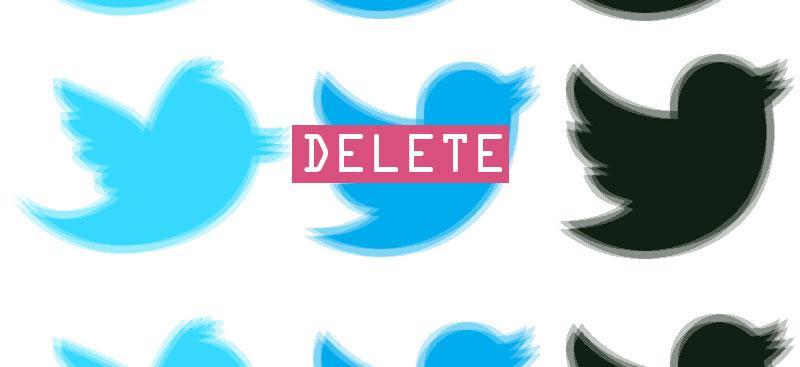Twitter Remorse: Deleted Tweets Trigger Backlash At The DNC, Washington Post, & The White House
Tyler Durden
Tue, 06/30/2020 – 11:40
Twitter remorse is an emotion that millions experience daily.
For most, a delete is sufficient until next Thanksgiving when a sibling brings it up at the table.
For The Democratic National Committee, The Washington Post, and the White House there is no such thing as a deletion as shown this week.
-
The week began with a controversy over President Donald Trump retweeting a video of supporters, including one screaming “White Power.”
-
Then the Washington Post global opinions editor Karen Attiah was under fire for a tweet suggesting that all white women are lucky that they are not targeted for “revenge.”
-
Most recently, the Democratic National Committee retweeted a message that Trump visiting Mount Rushmore was a “celebration of white supremacy.”
Notably, none of these tweets were actually defended, just deleted.
Trump deleted the video of a tweet showing Trump supporters and anti-Trump protesters engaged in an intense shouting match with one supporter yelling “White Power.” The media legitimately spent exhaustive coverage on the tweet. Trump has long been criticized for racially inflammatory rhetoric and the use of imagery and videos viewed by many as racist. Given the controversies that range from Central Park Five to the Charlottesville protests, the tweeting of a video showing someone yelling “White Power” is news.
However, the media did not comparatively spend much coverage on the DNC tweeting that Mount Rushmore glorifies “white supremacy.” That message appeared on the official Twitter account of the Democratic National Committee when it shared shared a link to an article containing criticism of the visit as “glorifying white supremacy at Mount Rushmore- a region once sacred to tribal communities.” George Washington, Thomas Jefferson, Theodore Roosevelt and Abraham Lincoln are shown at the site.
There was also comparatively little coverage of the tweet of Attiah even though this was a direct statement, not a retweet. Yet, it received virtually no coverage or criticism. he full tweet read:
“The lies & tears of White women hath wrought: -The 1921 Tulsa Massacre – Murder of Emmet Till – Exclusion of Black women from feminist movements – 53% of white women voting for Trump. White women are lucky that we are just calling them ‘Karen’s.’ And not calling for revenge.”
For those of us still reeling over the recent apology of the New York Times (and removal of its editor) for publishing a column from a conservative U.S. Senator, the lack of media coverage of a major editor’s posting is notable. My point is not that I want to see Attiah forced out. I do not. Indeed, like many, I praised her efforts to highlight the murder of the writer Jamal Khashoggi by the Saudi government. Moreover, Attiah is hardly the first person to have poster’s remorse of a tweet. We have all had such moments.
My point is the classic free speech and free press concern raised repeatedly on this blog over the consistency of standards. I still believe that the New York Times’ actions will live in journalistic infamy. It represented the lowest moment for that newspaper in abandoning any semblance of viewpoint neutrality while making echo-journalism a virtual official policy of the publication.
The coin of the realm for journalism has always been not just neutrality but consistency. The similar concern arises over the lack of coverage of the DNC controversy over the “White Supremacy” tweet as opposed to the Trump tweet over the “White Power” tweet. I think both tweets were outrageous. Yet, there remains a decidedly different response from the media. Both the DNC and Trump are actively engaged in a presidential election season where issues of races are being discussed extensively and passionately.
The fact is that I view all of these tweets are likely the result of incautious, negligent, or thoughtless moments. I tend not to ascribe evil or racist or hateful motivations when simple stupidity or spontaneity could be the reason for a controversy. A tweet is a dangerous invitation for heedlessly moments as this week has already shown.
via ZeroHedge News https://ift.tt/3ig8YXk Tyler Durden
